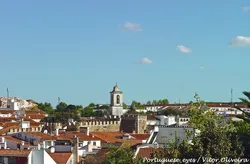

Evora and Borba Attractions in Portugal
Explore the rich history and unique features of Evora and Borba in Portugal. Discover the cultural heritage and attractions these cities offer to visitors.
Borba, Évora: A Hidden Gem in Portugal
Mycarro AI
May 2, 2025
Introduction to Borba
Nestled in the heart of the Alentejo region of Portugal, Borba is a charming town within the district of Évora. Known for its rich history, scenic landscapes, and exquisite marble production, Borba offers a glimpse of Portugal's cultural heritage away from the bustling tourist hotspots. With a population of around 5,000 residents, Borba retains a quaint and intimate atmosphere, inviting visitors to explore its historic streets and indulge in the local flavors.
A Historical Overview
Borba’s history dates back to prehistoric times, with evidence of settlements that suggest it was an important location for various civilizations. The Romans, in particular, left a significant mark on the area, with remnants of their presence still visible in the form of ancient structures and ruins. During the Middle Ages, Borba flourished as a trading hub, resulting in the construction of various churches and monuments that reflect its architectural evolution. Notable sites include the Church of Nossa Senhora da Expectação and the medieval castle, both of which tell the story of the town's past.
Famous for Marble
One of the distinguishing features of Borba is its renowned marble production. The region is rich in marble quarries, which not only contribute to the local economy but also enhance the town's aesthetic appeal. The marble extracted here is celebrated for its quality and variety, often used in buildings and sculptures across Portugal and beyond. Visitors can take guided tours of the quarries, where they can learn about the extraction process and see artisans at work. This unique aspect of Borba makes it a fascinating destination for those interested in craftsmanship and natural resources.
Gastronomy and Local Delights
The culinary scene in Borba is another reason to visit. The town is surrounded by fertile land, which allows for the production of high-quality agricultural products. Visitors can indulge in traditional Alentejo dishes such as "migas" (bread crumbs sautéed with garlic and olive oil) and "porco preto" (black pork), which are perfect complements to the local wines. Borba is also situated within the Alentejo wine region, known for its robust reds and fragrant whites. Wine lovers can explore nearby vineyards, partake in tastings, and learn about the winemaking process that has been refined over centuries.
Natural Beauty and Outdoor Activities
Surrounded by rolling hills, olive groves, and vineyards, Borba boasts stunning landscapes that appeal to outdoor enthusiasts. Hiking and cycling trails weave through the countryside, offering breathtaking views and opportunities to discover the local flora and fauna. The area's natural beauty is complemented by the warm Mediterranean climate, making it an ideal destination for year-round outdoor activities. Nature lovers will appreciate the tranquility and the opportunity to connect with the unspoiled environment.
Cultural Events and Festivals
Borba hosts a variety of cultural events and festivals that celebrate its traditions and community spirit. One notable event is the Festa de Nossa Senhora da Expectação, which takes place every September. This religious festival features processions, music, and traditional dances, drawing both locals and visitors into the heart of Borba's vibrant culture. Additionally, the town frequently organizes fairs and markets where artisans showcase their crafts, providing a perfect opportunity for visitors to take home unique souvenirs.
Conclusion: A Visit to Borba
In conclusion, Borba, Évora, is an enchanting town that merits a place on any travel itinerary. Whether you are intrigued by its rich history, captivated by its marble craftsmanship, or eager to indulge in its culinary delights, Borba has something to offer everyone. A visit to this hidden gem provides not only a connection to Portugal's cultural heritage but also a chance to experience the warmth and hospitality of its residents. For those looking to explore the lesser-known aspects of Portugal, Borba promises an authentic and memorable experience.